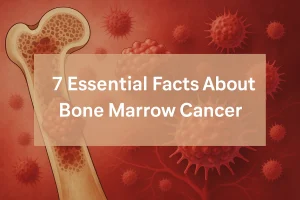
Decoding the Microbiome: How Gut Health Impacts Cancer Treatment
The microbiome, a complex community of trillions of microorganisms in the gut, is increasingly recognized as a key factor in human health. In addition to its well-known roles in digestion and immune regulation, recent research emphasizes its significant impact on cancer treatment outcomes. This article examines the detailed connection between the gut microbiome and cancer therapies, revealing mechanisms that affect treatment success and opening promising paths for personalized cancer care.
Understanding this relationship brings us closer to improving therapies and reshaping the future of cancer treatment.
What is Microbiome?
The human gut microbiome, often called the “forgotten organ,” is a dynamic ecosystem of bacteria, viruses, fungi, and other microorganisms. These tiny inhabitants play vital roles in nutrient metabolism, immune system development, and defense against pathogens. Keeping a diverse and balanced microbiome is essential for overall health and well-being, affecting many critical physiological processes.
The Gut Microbiome and Health
A healthy gut microbiome thrives on diversity, with many microbial species coexisting peacefully. This diversity promotes overall health, boosts the immune system, and reduces the risk of various diseases. Disruptions in this balance, known as dysbiosis, have been linked to conditions like inflammatory bowel disease, metabolic disorders, and even cancer.
The Microbiome-Immune System Axis
The microbiome regulates the immune system. Gut microbes and immune cells form complex interactions that shape the body’s defenses, influence pathogen responses, maintain tolerance to self-antigens, and assist the immune system in recognizing and targeting cancer cells. This critical connection lays the groundwork for understanding how the gut microbiome influences cancer treatment outcomes.
What is the role of the Microbiome in Cancer?
The relationship between the gut microbiome and cancer is multifaceted, involving a dynamic interplay extending beyond the gastrointestinal tract’s local environment. Emerging research suggests that the composition and function of the gut microbiome may influence various aspects of cancer development, progression, recurrence, and response to treatment.
Microbiome and Cancer Risk
Research suggests that changes in the gut microbiome can increase the risk of certain cancers. Dysbiosis, or an imbalance in gut microbes, can cause chronic inflammation and carcinogenic compounds, which contribute to cancer initiation and progression. Identifying these microbial signatures may enable early detection and prevention strategies.
Microbiome and Cancer Development
The gut microbiome has an impact on the tumor microenvironment, including inflammation, tumor growth, angiogenesis, and metastasis. Its interaction with the immune system plays a critical role in cancer progression and patient outcomes.
Microbiome and Response to Cancer Treatment
The microbiome also influences the efficacy of cancer treatments such as chemotherapy, radiotherapy, and immunotherapy. Gut microbes have been shown in studies to modulate treatment response, allowing for more personalized interventions.
The Microbiome’s Impact on Immunotherapy
Immunotherapy uses the immune system to target cancer cells. The gut microbiome is critical in modulating the response to immune checkpoint inhibitors (ICIs), with specific microbial profiles linked to better or worse outcomes.
Gut Microbiome as a Predictor of Immunotherapy Response
Analyzing the gut microbiome could be a predictive biomarker for immunotherapy success. Certain bacterial species are associated with increased response, while others may indicate resistance, paving the way for microbiome-guided immunotherapy in India.
Immune checkpoint inhibitors and the microbiome
The efficacy of ICIs is influenced by gut microbial composition. Understanding these microbial signatures has prompted research into strategies for modulating the microbiome and improving immunotherapy outcomes.
Final Thought
The microbiome has a significant impact on cancer treatment by influencing risk, disease progression, and therapy effectiveness. Understanding each patient’s gut microbiome enables personalized cancer treatment and targeted therapies, including immunotherapy in India. Using microbial profiles to predict treatment response can help to improve outcomes, reduce recurrence, and make cancer therapy more precise and effective.
FAQs
What is the gut microbiome?
The gut microbiome is a complex ecosystem composed of trillions of bacteria, viruses, fungi, and other microorganisms found in the digestive tract. It contributes significantly to digestion, immune system function, and overall health. Maintaining a diverse and balanced microbiome is critical for health.
How does the microbiome influence cancer risk?
Changes in the gut microbiome, known as dysbiosis, can cause chronic inflammation and produce carcinogenic compounds. This imbalance may raise the risk of certain cancers, making microbial signatures useful for early detection and prevention.
Can the microbiome affect cancer progression?
Yes. The gut microbiome affects the tumor microenvironment, which includes inflammation, tumor growth, angiogenesis, and metastasis. Its interactions with the immune system have a significant impact on cancer progression and patient outcomes.
How does the microbiome affect cancer treatment?
The microbiome can influence the efficacy of treatments such as chemotherapy, radiotherapy, and immunotherapy. Certain gut microbes improve treatment response, whereas imbalances can reduce efficacy, paving the way for personalized interventions.
Can the gut microbiome predict immunotherapy responses?
According to research, specific microbial profiles can predict how well patients respond to immune checkpoint inhibitors (ICIs). This insight enables microbiome-guided immunotherapy in India, which improves outcomes, reduces recurrence, and improves cancer treatment precision.
- Vision Loss in Brain Tumors: Causes, Symptoms & Treatment
- Pediatric Oncology: Navigating Challenges in Childhood Cancer





